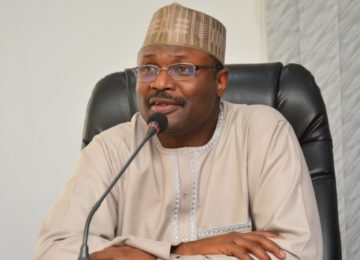Health practitioners in Nigeria must tap the benefits of information technology in order to change the face of medical practice in the country and avoid being left out of global trends.
Medical experts gave this advice on Friday at a conference organised by a group, Nigeria Health, in Abuja.
The “Future of Health Conference 2017”, with theme: The Business of Health, attracted many health experts, medical practitioners, health partners and new business enterprises in the medical world.
Speaking on the sub-theme “Breaking Down Barriers: Delivering Quality and Improving Access to Healthcare”, Olaokun Soyinka, who is project director of Independent Verification Agents for Saving One Million Lives, said the health sector in Nigeria is suffering from lack of political will on the part of politicians to revive and improve it.
He called on stakeholders in the sector to move from health advocacy to health activism, saying this was the only path to remarkable development in the sector.
He said there is a need to embrace information technology and tools in discharging health services in Nigeria, so as to improve service delivery to the people.
“It is time to abandon health advocacy, it is time for healthcare activism. There is a need for important care interventions in the country especially from the politicians,” he said.
Harriet Blest, Country Manager of Human Network International, also emphasised the importance of incorporating information technology into healthcare services delivery, saying it is the major way for effective dissemination of trusted information to people especially in the rural areas.
Ms. Blest said for people to have access to information, there is a need to employ every available means, including information technology through telecommunication.
She said research has shown that only nine per cent of women read newspapers and 35 per cent watch television, so those channels are not effective for giving people good health information.
“We have noted that more people subscribe to our health information bits offered through the telephone in different languages of choice and this has assisted to educate people on health and given them informed information on health topics in order to make necessary decision,” she said.
Peter Bamkole, Director, Enterprise Development Centre, Pan-Atlantic University, urged medical practitioners in the country to develop themselves to use ICT in delivering health services, as it will make their work easier, faster and more efficient.
He noted that although there are fantastic medical doctors in Nigeria, most have refused to develop themselves especially on the new trend of telemedicine.
He said the usage of ICT in service delivery in Nigeria is slow and making the country lose out of advanced medical technologies.
Mr. Bamkole lamented that files are still manually kept, when the world has gone electronic and made it easy for doctors to have access to a patient’s case file and make necessary decisions with ease and without wasting much time.
He urged the government to get the primary health care system fully functional with information technology and enhanced health financing to reduce the high mortality rate among children under the age of five and pregnant women.
“The government should get the PHCs in place and improve insurance to reduce out of pocket expenses for people as the poverty rate in the country is making it difficult for so many to access quality health care”, he said.




